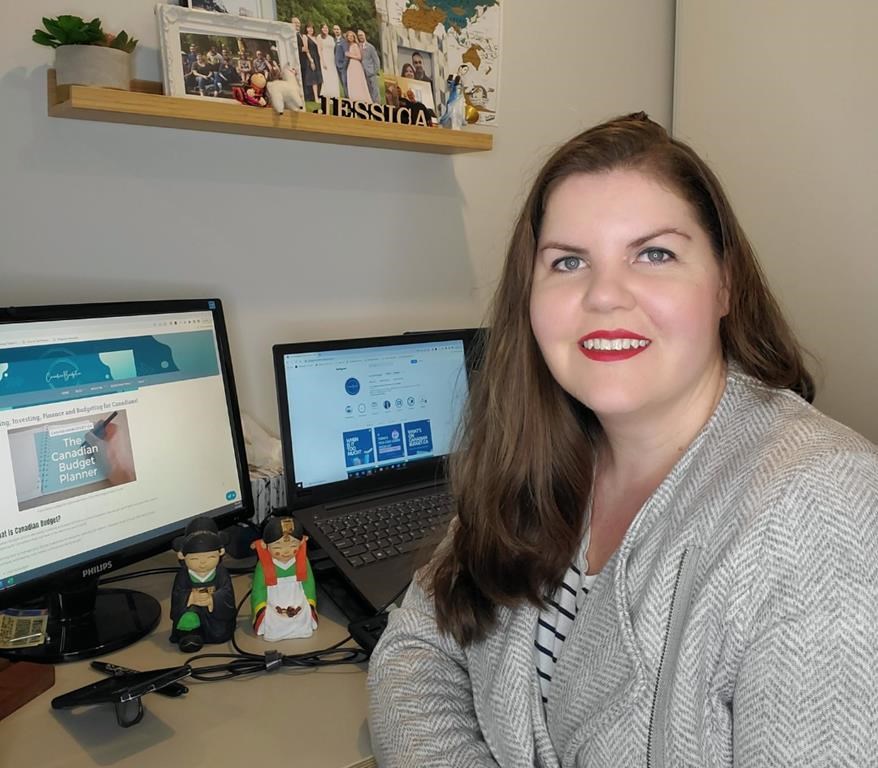TORONTO — Finance tips and advice that worked decades ago aren’t always relevant in today’s day and age. Still, well-meaning friends and family often recycle the same information for younger generations — only for them to find out the hard way the advice might be inaccurate.
Financial experts say they encounter myths every day in their line of work. Popular examples are that home ownership is the only way to get rich or budgeting rules that are outdated.
The Canadian Press spoke with Jason Heath, an advice-only certified financial planner at Objective Financial Partners; Jessica Morgan, founder and CEO of blog site Canadianbudget.ca and Reni Odetoyinbo, founder of Reni, The Resource about misunderstanding or dated advice they hear from clients.
Here are a few.
CPP won’t be there in the future
The Canada Pension Plan tends to be a point of confusion, says Heath. While many don’t understand how the pension system works, some believe CPP won’t stand the test of time and could be gone soon.
“A lot of people I talked to are skeptical about whether or not CPP will be around for them in the future — who think the federal government somehow has access … and is going to use it for something else,” Heath says.
In fact, the Canada Pension Plan Investment Board is a Crown corporation and independent of the federal government, with a portfolio of roughly $600 billion in assets.The latest report from the office of Canada’s chief actuary, which reviews the CPP’s sustainability every three years, said the pension fund remains sustainable for more than the next 75 yearsbased on current assets, contributions, and benefits being paid, Heath said.
Dividends are magical
Investors often gravitate to dividends and favour stocks with high shareholder payouts, Heath says.
“Some investors have an irrational focus on dividends,” he said. “Dividends aren’t magical.”
Dividends are after-tax profits a company distributes among its shareholders, typically every quarter, and can be paid in cash or a form of reinvestment.
Heath said a company that pays a high dividend reinvests less of its profit into growth, potentially losing out on opportunities to up its market value. In Canada, stocks with high dividends come from a narrow slice of the stock market — banks, telecoms and utilities.
“Ideally, an investor should consider a combination of stocks with high and low dividends to have a well-diversified portfolio,” he said.
Contribute to RRSP, save on taxes
“There’s a lot of taxpayers, investment advisers and accountants who really promote the concept of putting as much into your (Registered Retirement Savings Plan) as you absolutely can,” said Heath.
As a financial planner, he thinks the contrary. Heath says using RRSP contributions to get the biggest tax refund possible is not necessarily the best approach for people in low tax brackets and can hurt them in the long run when they withdraw those savings at a higher tax bracket in retirement.
“Sometimes, it’s OK to pay a little bit of tax, as long as you’re paying at a low tax rate,” he said.
Instead, Tax-Free Savings Account contributions could be better for someone with a low income.
It can be wise to use the low tax bracket by taking RRSP withdrawals early in retirement, even though it might feel good to withdraw only from your TFSA or non-registered savings and keep your taxable income low.
“Lifetime tax reduction — so-called income smoothing — may be the best approach,” Heath said.
50-30-20 budgeting
Fifty per cent of the paycheque for needs, 30 per cent for wants and 20 per cent for savings — the popular budgeting strategy doesn’t work anymore, says Morgan of Canadianbudget.ca.
“In today’s environment, it doesn’t fit as well as it maybe used to a decade ago,” she said. “Because of (the) high cost of living (and) high cost of housing in Canada, it’s a bit harder to make things fit into that proportion.”
Morgan added people mistakenly think of budgeting as restrictive — having to cut back on everything, including fun.
“But people don’t think of every company out there in the world that has a budget and they stick to it because it’s a way to use your money that benefits you and helps you reach your goals,” she said.
Morgan suggests following a zero-based budget, which means assigning a “job” to every dollar, even if it is being put aside for savings — and not leaving any dollar unused.
“Even if that means you’re leaving a buffer amount of $200 to protect you, (and) you’re over in a certain category, you’ve given that $200 a job — that job is to protect you,” she said.
Investing is complicated
“So many Canadians hand their money over to the bank, which is then invested in high-fee mutual funds or, even worse, (people) don’t invest at all,” says Morgan.
Robo-advisors such as Wealthsimple and Questrade have democratized and simplified investing to a level that anybody can start their investment journey without specialized finance knowledge and still maintain a level of safety, she added.
“It is easy these days to start investing,” Morgan said.
It doesn’t require a complex understanding of financial markets and institutions but a general knowledge of how investing works and the fees involved, she said.
Owning a home is better than renting
While home ownership has its upsides, Odetoyinbo says renting can be a more financially viable option in certain situations.
“It’s important to run the numbers to see which one (owning or renting) is truly more affordable for you in your circumstance,” she said. “People often think (home ownership) is more of an investment than it actually is because they never sat down to run the numbers.”
Home ownership is also more complicated than just a down payment and monthly mortgage — closing costs,repairs and maintenance fees are additional expenses people may overlook.
Odetoyinbo’s advice to non-homeowners is to invest that extra money in the stock market or other avenues instead to grow income and find stability.
This report by The Canadian Press was first published March 26, 2024.



